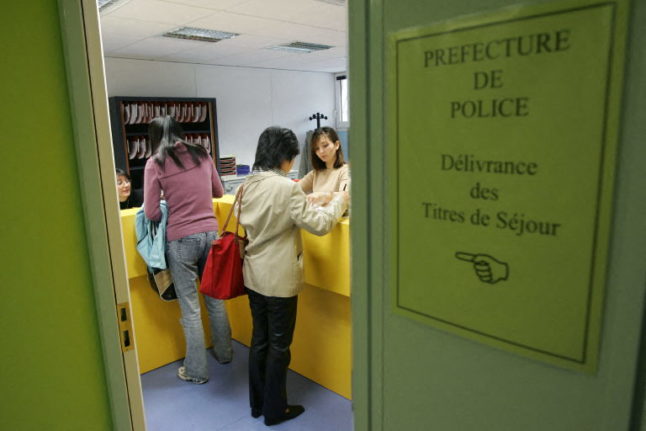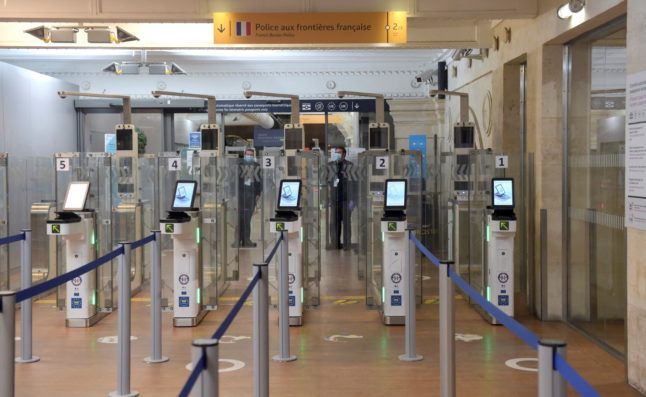Question: I read that France will now be requiring foreigners to sign a contract promising to respect French values, and to take civics classes – does that mean I will have to do that when I next renew my carte de séjour?
The short answer to this is – maybe, it depends on the type of card you have and what change you’re hoping to make.
Here’s the longer answer;
France’s new immigration law, passed back in January, brought in three main changes for foreigners in France – language tests, a contract promising to ‘respect the values of the French republic’ and expanded classes in civics (French culture, history and values).
Language tests
Undoubtedly the biggest change for most people is the language tests – we have covered this topic extensively HERE.
Contracts
Then there is the Contrat d’engagement au respect des principes de la République française – which is a promise to respect the ‘values of the French republic’ such as personal freedom, freedom of expression and equality between men and women.
In practical terms, this is just a form that you will need to sign as part of the application process for a visa or residency card – you can find full details on exactly what you’re agreeing to respect HERE.
This applies to all types of visa and residency card, including renewals. It is not yet in force, but is expected to come into effect later this year.
Classes
Then there are is the contrat d’intégration républicaine (CIR), which has a confusingly similar name. This involves extra courses in civics and language that certain groups can be required to attend.
The CIR is a lot more than just signing a form, you also agree to take several hours of classes – but the key thing is that many groups are exempt from this requirement.
The immigration law doesn’t actually change who is required to sign the CIR and do the classes, it just expands the scope of the classes themselves and adds a test at the end.
These don’t apply to people applying for visa, it’s only when you get your residency permit – carte de séjour/titre de séjour – that you may be required to meet with OFII (the French office of immigration and integration) and take the classes.
Exemptions – Let’s start with exemptions – if you are applying for or renewing any of the following carte de séjour types you do not need to do the classes;
- Visitors (carte de séjour temporaire “visiteur”)
- Students (carte de séjour temporaire portant la mention “étudiant”)
- Trainees/interns (carte de séjour temporaire portant la mention “stagiaire”)
- Temporary workers (carte de séjour temporaire portant la mention “travailleur temporaire”)
- People who were born in France and have resided here for at least eight years (you fall under the jeune étranger né en France status of the carte de séjour temporaire portant la mention “vie privée et familiale”)
- People with serious illness (you fall under the ‘étranger malade‘ category of the carte de séjour temporaire portant la mention “vie privée et familiale”)
- Seconded employees and their families (carte de séjour pluriannuelle portant la mention “salarié détaché”)
- Seasonal workers (carte de séjour pluriannuelle portant la mention “travailleur saisonnier”)
- Talent passport holders and their families (carte de séjour pluriannuelle portant la mention “passeport talent”)
- People who completed at least three years of French secondary school or one year of higher education in France
EU/EEA/ Swiss nationals - Holders of the post-Brexit Article 50 TUE carte de séjour
- People who qualify for the carte de résident due to service in the French foreign legion or military
So who does have to do the classes? – The new law does not change who has to sign the CIR (and by extension, agree to take the classes), certain groups have always been required to do this, including;
- Workers on a salarié carte de séjour
- Self-employed people on a entrepreneur/profession libérale status
- Certain groups on the ‘vie privée et familiale‘ statuses, including parents of French minors and foreign spouses and partners (PACs) of French nationals.
- Applicants for the carte de résident de longue durée-UE card, which is given to people after five years of residency in France
- Refugees
You only have to sign the CIR and take the assigned courses once, and the certificate then applies to all future card applications and renewals.
How to access the classes
In most cases, people do the classes shortly after arriving in France when they request their first carte de séjour (usually after three months of residence, although it can be longer for different card types).
It is part of the general summons by the OFII which can also include language classes and a medical test.
OFII: Your questions answered on France’s immigration office
However if you are swapping from a card type that is exempt onto a card type that is not exempt you may also have to do them – for example if you apply for the carte de résident de longue durée-UE after five years of residence and were previously on a ‘visiteur’ card.
In this case you won’t receive a summons from OFII, you will need to contact them and request the relevant form. You will be called to an interview and from this interview they will decide whether you need to do the classes or not – it depends on your level of French and whether you can demonstrate that you are integrated into French society and understand French values.
In the case of the carte de résident de longue durée-UE, the opinion of your local mayor or commune can be taken into account – so if you know your mayor you could ask them to write an attestation stating that you are well integrated into local life, which may help.
So that’s the long answer – we did warn you.



 Please whitelist us to continue reading.
Please whitelist us to continue reading.
Member comments